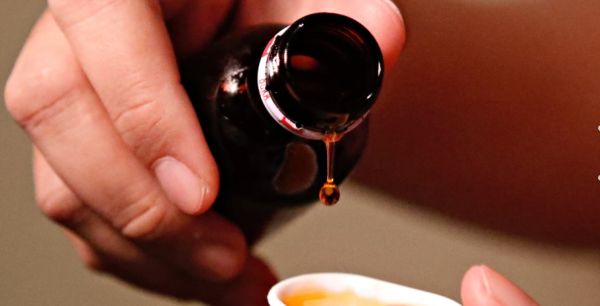
In a shocking round of cuff syrup crisis in India, Madhya Pradesh officials arrested Dr. Praveen Soni, a government pediatrician late on Saturday night. They have been linked to the deaths of 11 children due to kidney failure of 11 children by drinking contaminated cold syrup. The 35-year-old doctor, who was posted at Parasia Civil Hospital and running a private clinic, allegedly gave this deadly medicine to most of the victims for the symptoms of normal cold and fever in early September.
In the trials conducted by Chennai’s drug testing laboratory, 48.6% of Diathylene Glycol (DEG) was found in syrup. It is a poisonous industrial solvent that is notorious for closing organs, as seen in previous global scams. Buced by Srisan Pharmaceuticals of Tamil Nadu in Kanchipuram, Coldrif brought a rapid decline in the condition of children, and the post -mortem report confirmed the kidney damage and urination of the DEG.
Dr. Soni is accused of culpable homicide and endangered life under Section 27 (A) of the Drugs and Cosmetics Act as well as the provisions of the Indian Justice Code. The complaint lodged by Parasia’s Block Medical Officer Ankit Sahalam has accused him of negligence despite the availability of safe options. Eleven deaths occurred in Parasia, while two more Chhindwara took place in the city and Chaurai.
Madhya Pradesh immediately banned Coldrif across the state and banned Srison to pending tests on the sale of Nextro-DS. Chief Minister Mohan Yadav condemned this “heart -wrenching tragedy”, announced a high -level investigation team and vowed to “no softening towards the culprits”. Legal action will be taken against the manufacturer, and Tamil Nadu will be urged to audit plants.
The wave of this resentment has spread across the country: Rajasthan, Tamil Nadu and Kerala have banned coldrifs amid fears of widespread contamination. In Rajasthan, after the death of three children – Nityansh (4), Emperor and Tirtharaj – in Bharatpur and Sikar, two health officials and drug controller Rajaram Sharma were suspended in the case of HBR Syrup, a separate dextromethorphon HBR syrup in Kayson Pharma. Health Minister Gajendra Singh Khivansar clarified that there are no parts of DEG so far, and told diseases due to excessive drug consumption; The affected children like Gagan and Kittu-Tinku recovered after treatment. In the advice of DCGI, such syrup has been banned for children under two years of age and urged to take precautions for 2-5 years of children.
Reminding Uzbekistan’s 2022 tragedy, it exposes the outbreak, loose drug monitoring. With the death of a total of 12 children in the states, the demand for strict reforms to protect weak children from “fatal treatment” has intensified. As the investigation is moving forward, families are demanding justice, which is giving light on the immediate requirement of India’s rapidly growing generic market.